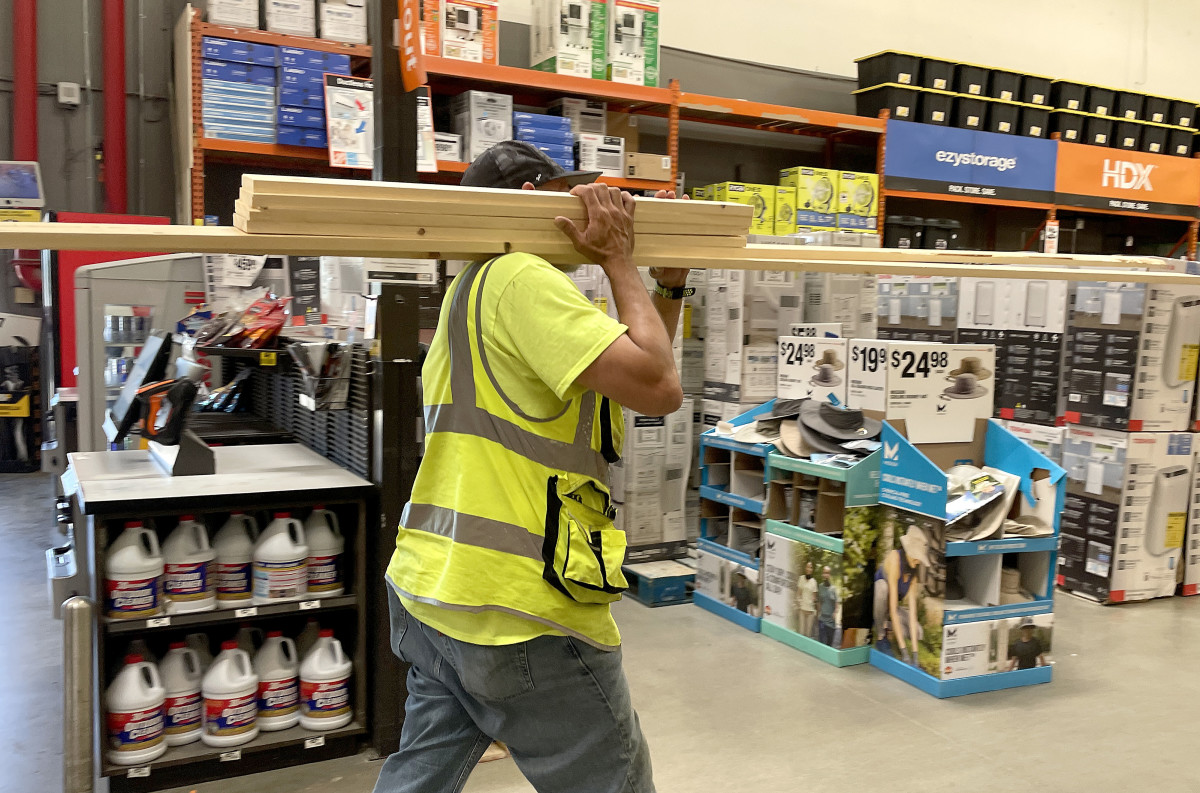
One of the silver linings of the past several years has been having a little extra time on our hands.
During the lockdowns of the early 2020s, many of us were under stay-at-home or shelter-in-place orders, which gave us time to look around the house and face the projects we'd been putting off.
Related: Sephora is suddenly abandoning a major market
And thanks to a shortage of labor and a gummed-up supply chain, hiring professional contractors was harder to come by. So many Americans tried their hand at doing projects themselves.
Perhaps they were minor projects, like adding a fresh coat of paint to the powder room or changing out the hardware on the kitchen cabinets. But many folks went far deeper into the DIY space, replacing flooring, adding new decks to their outdoor spaces, or doing an entire kitchen remodel.
Part of what made this process so accessible was the stimulus checks that went out to millions of Americans, so they had a little extra spending cash for these projects. Another was the proximity and convenience of home-improvement stores like Home Depot (HD) .
With more than 2,300 stores across the U.S., Home Depot saw extreme growth during the pandemic. After the pandemic waned, the housing market boomed and professional labor got back to work, though. And the chain benefited from this surge, too. Home Depot's stock has about doubled since the early 2020s.
Home Depot focuses on a growing base
A robust consumer base is great when times are good, but when inflation hits and individuals look to ease up on their expenses, a company can be more exposed to downside risk, like dwindling sales.
This is partly why Home Depot has made a concerted effort in recent quarters to pivot its focus to professionals. Contractors, home improvement professionals, businesses, remodelers and designers have always been a part of Home Depot's core business, but they tend to be less cyclical than individual customers and tend to contribute more routine business.

In March, Home Depot announced it would be opening up distribution centers across several key areas in the U.S. specifically for home improvement professionals.
These centers are to focus more on bigger projects and will be about five times larger than the average Home Depot store, making it easier for professionals to navigate the centers and pick up more supplies.
And on Thursday, Home Depot said it was making its largest acquisition yet to further its foothold in the contracting arena.
Home Depot agreed to acquire SRS Distribution of McKinney, Texas, for $18.25 billion. SRS Distribution provides goods and materials for home-improvement contractors, like landscaping tools, roofing supplies, lumber, and pool materials.
SRS Distribution employs about 11,000 people and operates 760 branches across 47 states. The acquisition is expected to close in January 2025.
“Growing our share of wallet with the pro will fuel Home Depot’s next great growth chapter. SRS will help us better sell the whole project and capture a new customer we haven’t traditionally served,” a Home Depot spokesperson said.
Home Depot's Q4 sales were down 3% from a year earlier as individual shoppers pulled back on their expenses, so focusing on a steadier growth trajectory is likely to bolster the retailer's sales in the coming years.
"After three years of exceptional growth for our business, 2023 was a year of moderation. It was also a year of opportunity," Home Depot Chief Executive Ted Decker said on the earnings call in February.







